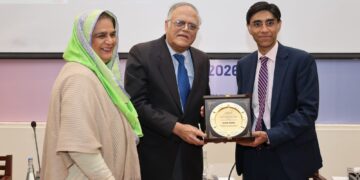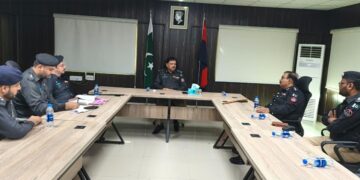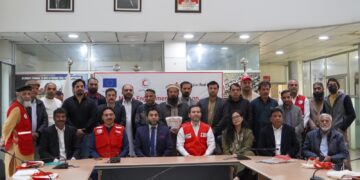Karachi : Senior Vice President of Pakistan Agriculture and Horticulture Forum Khalid Ijaz Qureshi said in a statement that the use of the latest AI technology in the agricultural sector is the need of the hour. He said that every sector is being improved by using the latest technology all over the world. In Pakistan, the use of modern technology will also develop other sectors including the agricultural sector. While with the help of AI, an industrial revolution can also be brought about by improving productivity, tackling challenges such as climate change, water scarcity and food security. Khalid Ijaz Qureshi said that the successful implementation of AI in the agricultural sector in Pakistan will yield excellent results, in which artificial intelligence-powered tools will be used to plant, irrigate and Crop yields can be improved by providing data-driven insights into fertilization, with AI systems analyzing satellite images, weather patterns, and soil health data. They also help in suggesting the best planting times, crop varieties and effective irrigation methods. He said that artificial intelligence machine learning (ML) models can be used to monitor crops for signs of pests, diseases or nutrient deficiencies by analyzing images taken by drones or cameras and AI can detect patterns, while potential crop problems can be predicted before they spread and enable timely intervention. Khalid Ijaz Qureshi said that AI-powered irrigation systems can be used to automate water use based on real-time weather forecasts, soil moisture levels and crop requirements. This can significantly reduce water use, which is especially important in water-scarce areas of Pakistan. He said that AI robotic systems can be deployed for tasks such as planting, weeding and harvesting as these robots can work in harsh conditions. The use of this tool can improve efficiency by reducing labor costs. Khalid Ijaz Qureshi said that the adoption of AI technology in Pakistan’s agricultural sector is a promising step towards managing resources more efficiently and solving problems to increase food production.




















